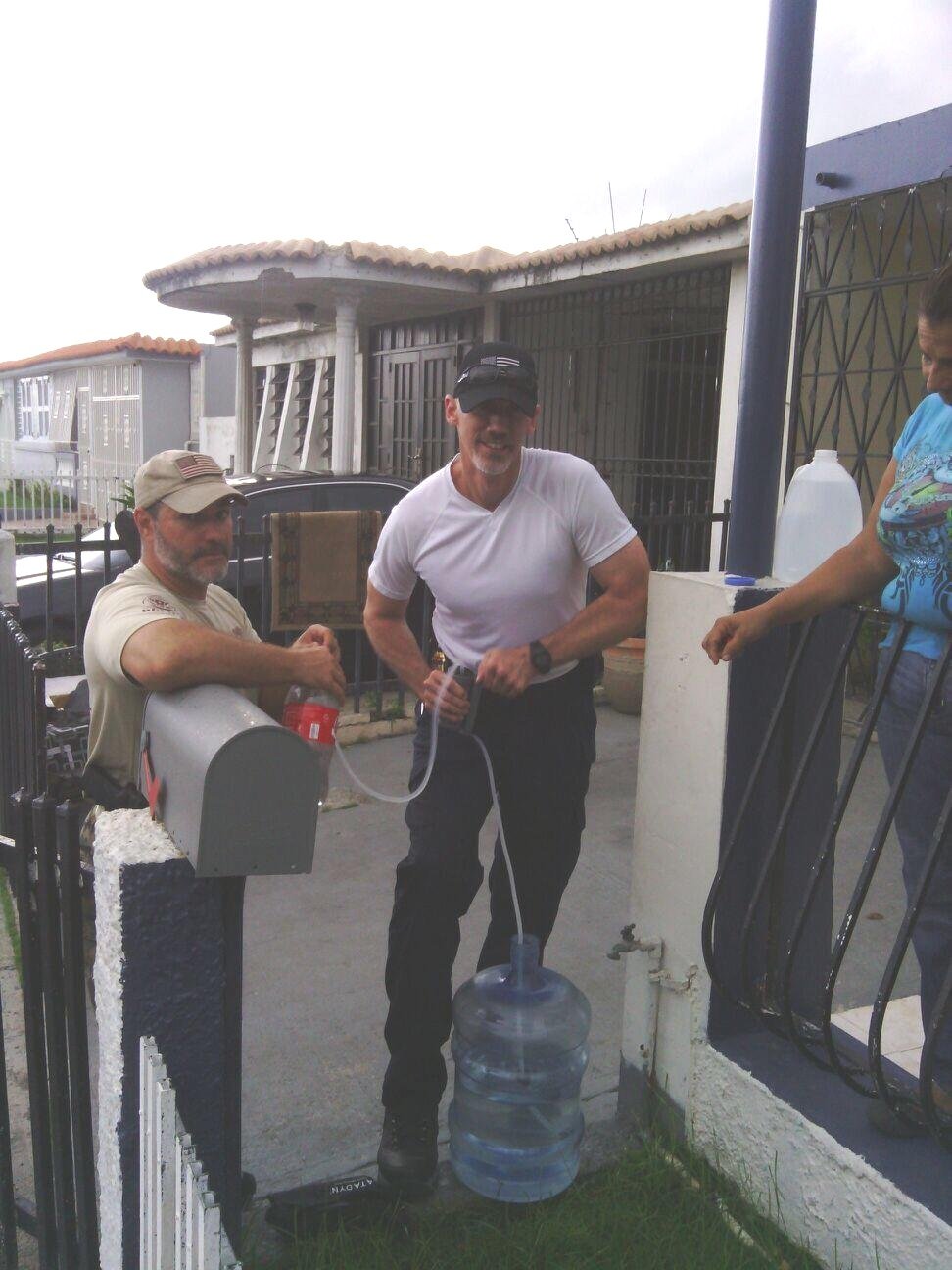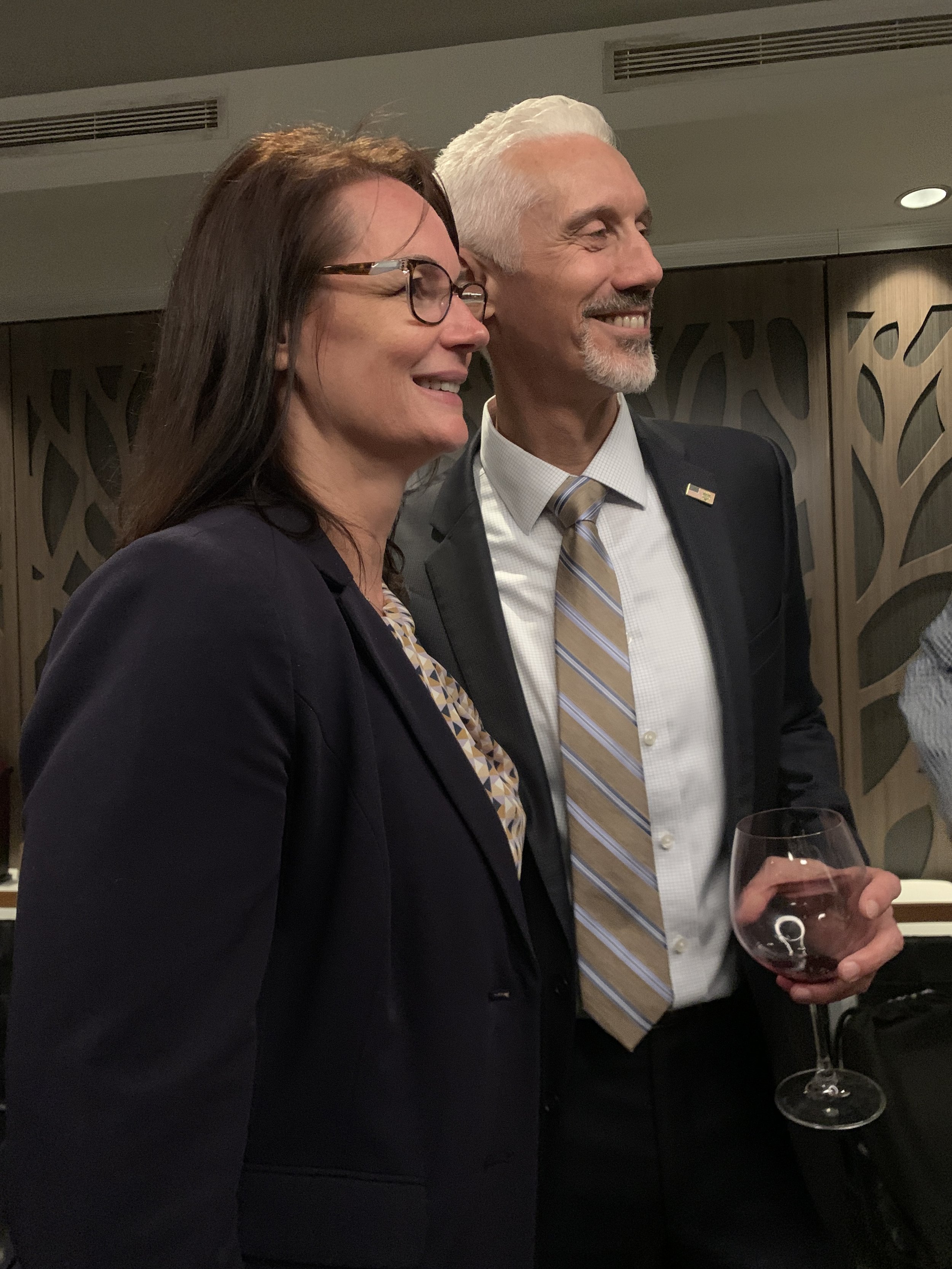How to retire well? Kick in doors so others can walk through them.
The Silver Fox, Retired.
I think a lot about service, about the idea that we’re here for one another, that if someone needs upholding, we do the holding up. It’s the bedrock of our society: we serve when we say hello to a stranger sharing the sidewalk or check in on a neighbor; the creativity of the artist serves as a way to connect. And obviously careers that are all-service - educating, health care, the restaurants industry and of course the armed forces - are vital. We all have the service gene, however uniquely it manifests. My husband John, my Silver Fox, has it; for the past 20 years he has served in our federal government as a special agent with IRS Criminal Investigations, and last week he retired.
I have always been suspicious of that word. “Retirement“ connotes, for me, a finality, a leaving behind that which defines you. Perhaps that’s because a long career as an artist requires lots of morphing, there is no “winning” at something that’s arguably subjective, and experience isn’t always lauded. In the Silver Fox’s world, however, retirement is actually a massive achievement: someone who serves long and well is highly valued.
Now, we’ve heard every joke about working for the IRS. If we had a dollar for every time someone remarked, upon learning what my husband did, that they paid their taxes, they promise! Don’t worry everyone, that was never his job. (Although we should all pay our fair share.) No, John’s government service was to protect our country from incursion via financial crime. My joke was that his work was to save the world, one dollar at a time; it’s no joke though, because that’s exactly how he saw it.
I could tell you all about each position he’s held, from the first one: a special agent kicking in doors like we see on TV, to the last: Director of Narcotics and National Security for the IRS, and many in between. I could tell you about each award or citation (countless), each big case (actually I can’t cause unless it hit the papers, I was in the dark). But I think the true relevance of my husband’s career lies not so much in what he did, impressive as all of that is; it’s in why and how he did it.
As a young man in upstate New York, John ran with a pretty rough crowd. These were seriously disadvantaged kids who didn’t know otherwise; they went looking for trouble, and found it. His single mom was working just to keep it all together, and things got out of hand. He rarely speaks of this time in his life, not out of a sense of shame or embarrassment, but because the pain of the loss of those young people still breaks his heart. (I tell this story with his permission.) He could not have saved his friends from prison, or worse, saved some of them at all, so he got out, turned his life around and ultimately dedicated his career to doing his part to save the rest of us.
That’s the short version. In reality, it took a bit to make change. He and his mother moved multiple times, John changed schools and changed back. He tried every get-rich-quick scheme known to kid-dom; to his credit, the most reliable one is the one that stuck: getting a job. Actually, every job. The paper route, the fish fry, odd jobs for his grandma. He worked in restaurants, bars, at a health insurance company; as a construction worker, a landlord, a car salesman, a bookkeeper for an information system start-up. He joined the Army, got an accounting degree. When the IRS came calling, he had a lot to offer and knew that while it required hard work, it would also mean he could make a difference. Here’s how he did just that:
Don’t retrace your steps, even if those steps are sometimes hard to take. Going backwards is not John’s nature, not even if we’re just on a walk. This meant learning new things to stay relevant like Spanish, Arabic, the history of the Middle East, public speaking. This meant taking a high-level management position when he’d rather have stayed in the field, because it was the best thing for the agency. This meant that we moved more than was fun. This meant taking responsibility for mistakes, both his own and those made on his watch, then empowering others to do the same. In his mind, you don’t get to complain about something without offering a solution, even if the solution means going the long way around.
There’s potential in everyone. Get on their path for a while to find it. John made it his mission to seek out the strugglers, as the system doesn’t always allow for people being people. If an employee was under-performing, he took the time to find out why, to get inside their thinking and their life and find a way for their talents to rise to the surface. His favorite start to any question he asks is “just out of curiosity,” and I can attest that he really does want to know what makes you tick. (Next time you see him, tally the number of times he says it and report back.) You cannot know what someone needs unless you ask them. Serving those in his care allowed them to better serve the nation. So have high expectations, and then help your people fulfill them.
Keep kicking in doors so others can walk through them. John is a master of the art of the possible, and terribly impatient with the status quo. Even when he’d moved to headquarters and was no longer actually putting handcuffs on the bad actors (I mean the seriously bad actors, not the kind in my business), he insisted on shaking things up and taking down barriers. If there was a more expedient way, a way that made sense, saved money, brought in partners, produced results but was not sanctioned, he ran the numbers and badgered the higher-ups to implement his ideas. He never accepted “because that's the way it’s always been done” as an answer. (This goes for how I clean the house as well.) Shaking things up can be a good thing when done thoughtfully, and while I know it drove them crazy, every one of those higher-ups thanked him for his outspoken style in their farewell remarks. One thing he’s terribly proud of? A woman is taking his place.
NOTE : The actual busting-down-of-doors is scary and dangerous and completely unglamorous - it requires diligence and great attention to detail to be sure it’s done right. Do not attempt at home.
American government workers do not serve at the pleasure - they serve you and me; they are proud to do what they do, and we should celebrate them. By the time you read this, my Silver Fox will have swapped out his old badge for one that reads “retired” and the wall in his office will be covered with the aforementioned awards and citations. While I want to say that the only thing he will be serving is dinner to me, I doubt that will be true for long. If you couldn’t tell, I’m so very proud to walk this path with him.
Oh and don’t worry. He'll still be the Silver Fox. #nowandforever




